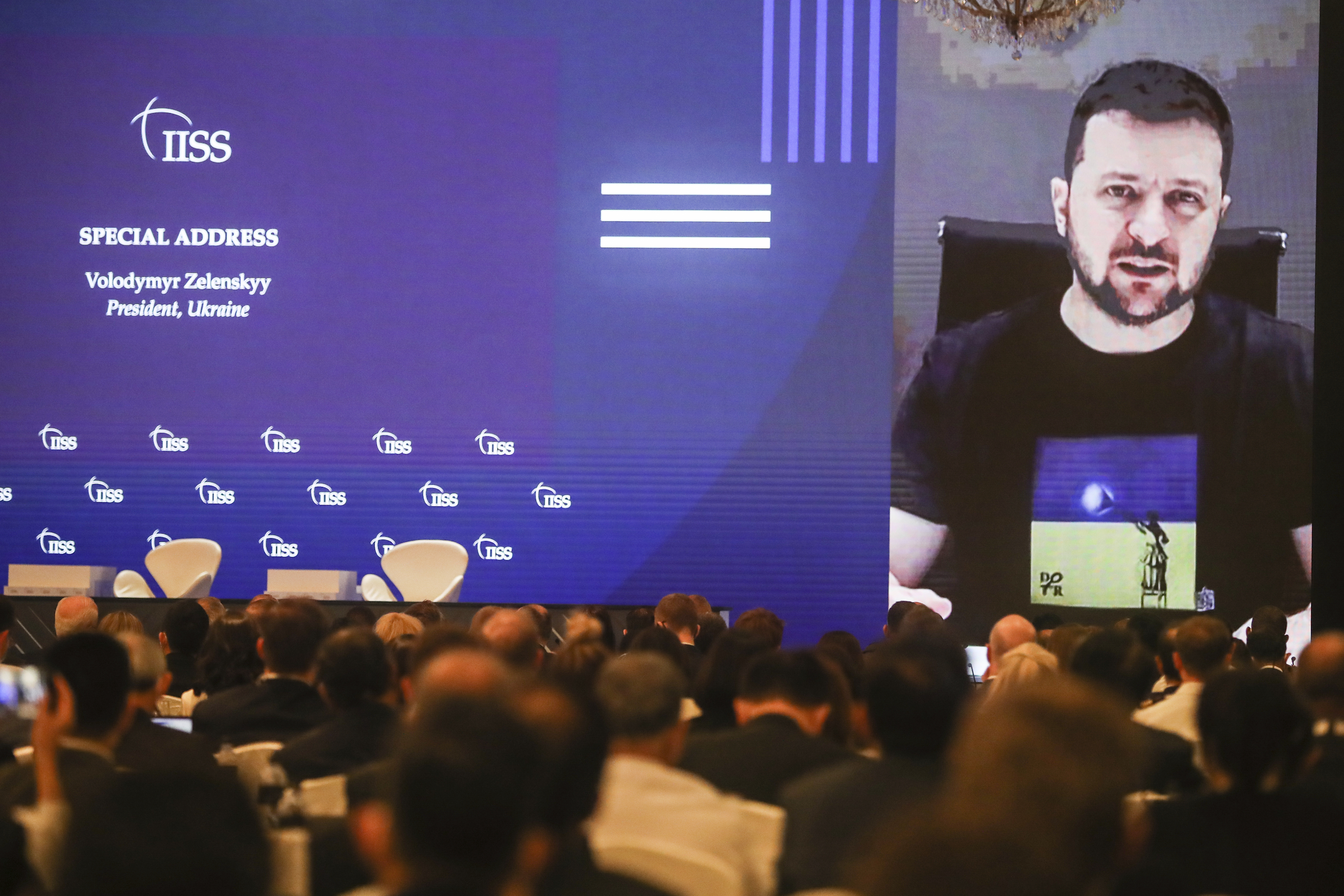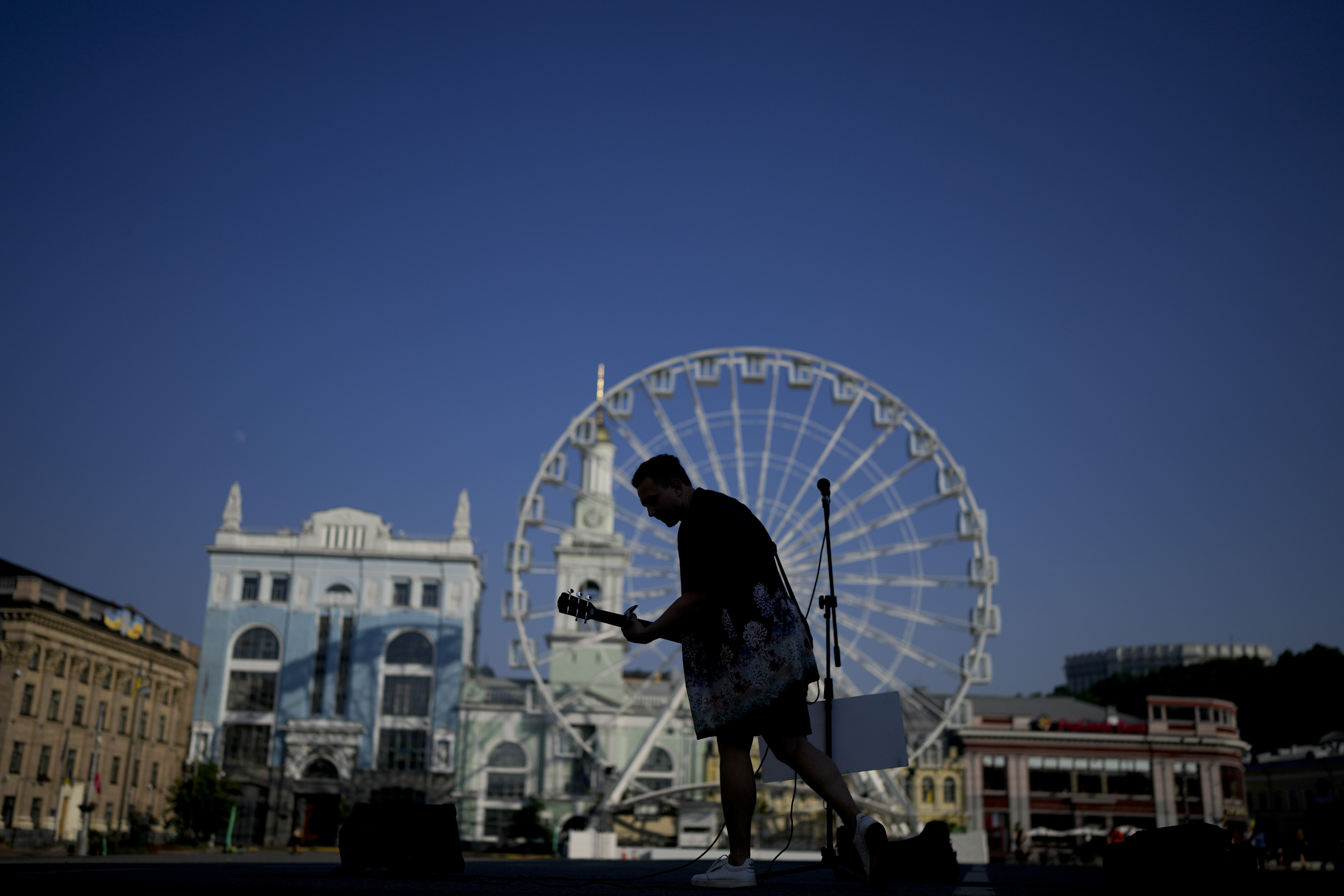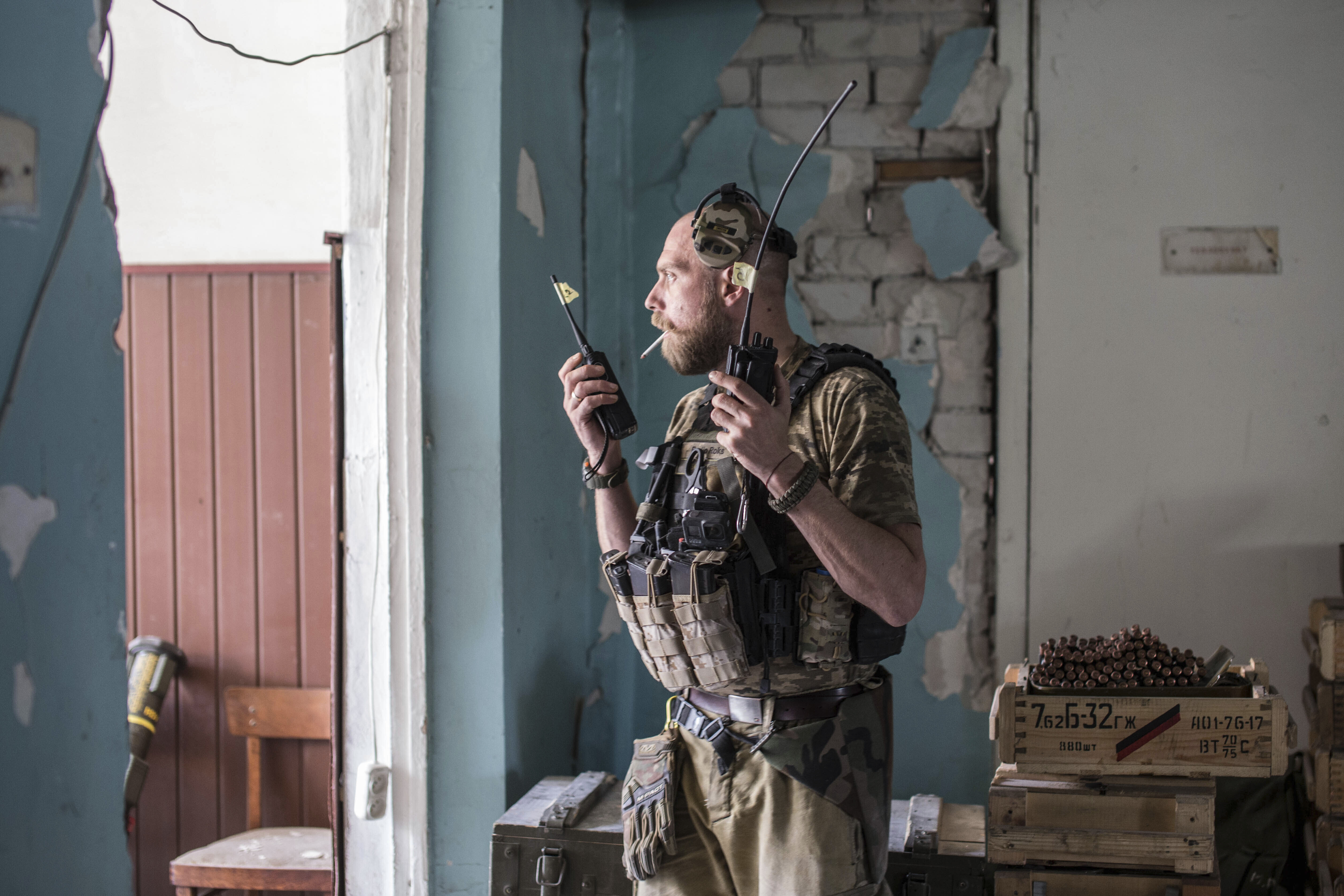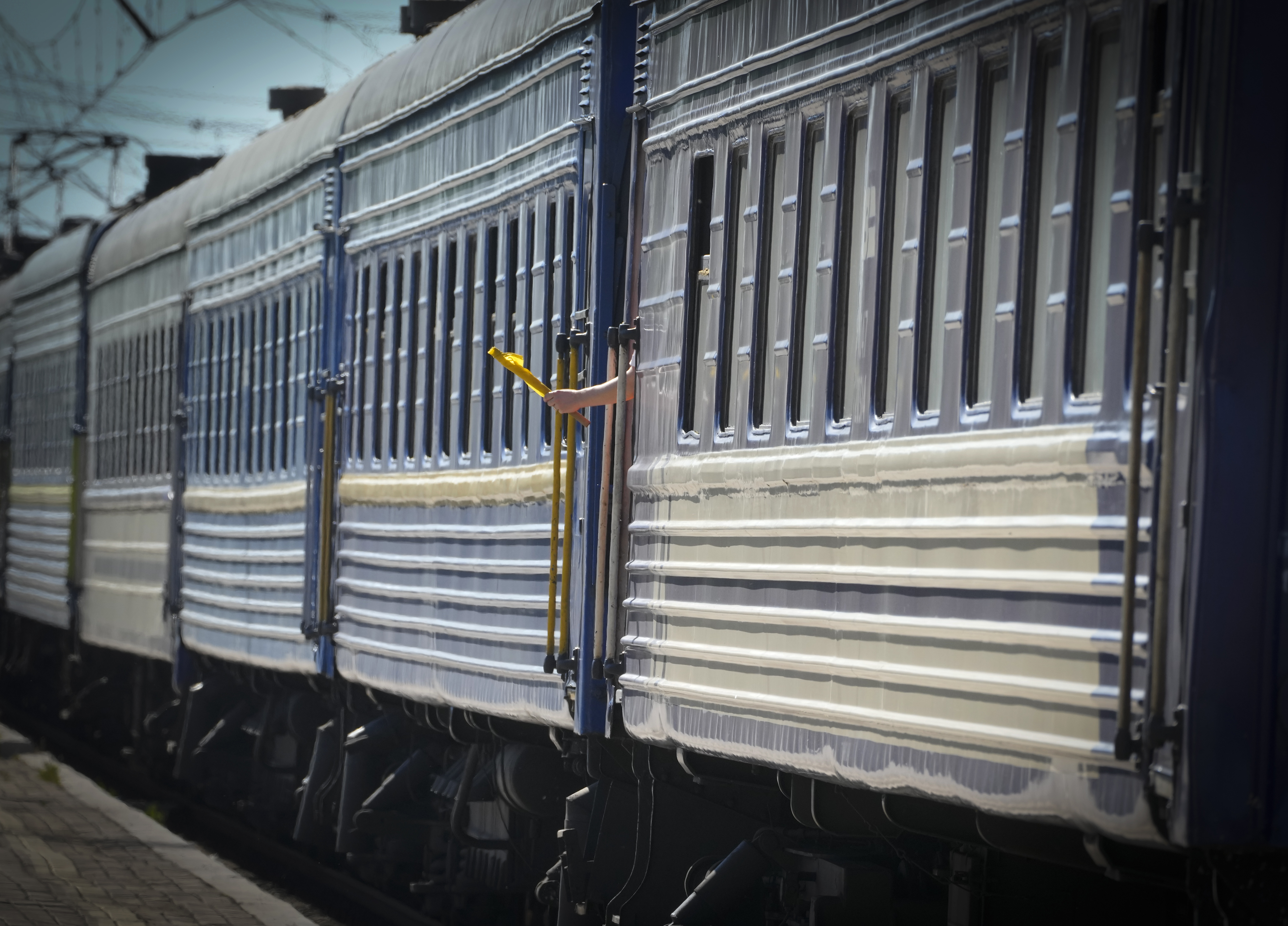KYIV, Ukraine — Ukrainian and British officials warned Saturday that Russian forces are relying on weapons able to cause mass casualties as they try to make headway in capturing eastern Ukraine and fierce, prolonged fighting depletes resources on both sides.
Russian bombers have likely been launching heavy 1960s-era anti-ship missiles in Ukraine, the U.K. Defense Ministry said. The Kh-22 missiles were primarily designed to destroy aircraft carriers using a nuclear warhead. When used in ground attacks with conventional warheads, they “are highly inaccurate and therefore can cause severe collateral damage and casualties,” the ministry said.
Both sides have expended large amounts of weaponry in what has become a grinding war of attrition for the eastern region of coal mines and factories known as the Donbas, placing huge strains on their resources and stockpiles.
Russia is likely using the 6.1-ton anti-ship missiles because it is running short of more precise modern missiles, the British ministry said. It gave no details of where exactly such missiles are thought to have been deployed.
As Russia also sought to consolidate its hold over territory seized so far in the 108-day war, the U.S. defense secretary said Moscow’s invasion of Ukraine “is what happens when oppressors trample the rules that protect us all.”
“It’s what happens when big powers decide that their imperial appetites matter more than the rights of their peaceful neighbors,” Lloyd Austin said during a visit to Asia. “And it’s a preview of a possible world of chaos and turmoil that none of us would want to live in.”
A Ukrainian governor accused Russia of using incendiary weapons in a village in the eastern province of Luhansk, southwest of the fiercely contested cities of Sievierodonetsk and Lysychansk.
While the use of flamethrowers on the battlefield is legal, provincial Gov. Serhii Haidai alleged the overnight attacks in Vrubivka caused widespread damage to civilian facilities and an unknown number of victims.
“At night, the enemy used a flamethrower rocket system — many houses burnt down,” Haidai wrote on Telegram on Saturday. His claim could not be immediately verified.
Sievierodonetsk and neighboring Lysychansk are the last major areas of Luhansk remaining under Ukrainian control. Haidai said Russian forces destroyed railway depots, a brick factory and a glass factory.
The Ukrainian army said Saturday that Russian forces also were to launch an offensive on the city of Sloviansk in Donetsk province, which together with Luhansk makes up the Donbas.
Moscow-backed rebels have controlled self-proclaimed republics in both provinces since 2014, and Russia is trying to seize the territory still in Ukrainian hands.
EU MEMBERSHIP
During a visit to Kyiv by the European Union’s top official, Ukrainian President Volodymr Zelenskyy called for a new round of “even stronger” EU sanctions against Russia.
Zelenskyy called for them to target more Russian officials, including judges, and to hamper the activities of all Russian banks, including gas giant Gazprom’s bank, as well as all Russian companies helping Moscow “in any way.”
He spoke during a brief media appearance with European Commission President Ursula von der Leyen at the heavily guarded presidential office compound in Ukraine’s capital. Von der Leyen was on her second visit to Ukraine since the invasion in February.
The pair discussed Ukraine’s aspirations for EU membership. Zelenskyy, speaking through a translator, said Ukraine “will do everything” to integrate with the bloc.
“You have done a lot on strengthening the rule of law but there still need to be reforms implemented to fight corruption, for example,” von der Leyen said during a joint appearance with Zelenskyy, noting the EU is preparing its opinion on Ukraine’s membership application. “The discussion today will enable us to finalize the assessment by the end of next week.”
The commission is expected to recommend on Friday that Ukraine be granted candidate status to join the bloc with conditions linked to the rule of law and the fight against corruption, according to people familiar with the matter.
“We have been working day and night on this assessment,” she said.
That opinion, which needs to be adopted by the college of commissioners, would need the unanimous approval of the 27 member states before Ukraine’s application can progress. The milestone opens an arduous membership process that could last more than a decade in which the country must adopt EU rules and standards.
Von der Leyen discussed at length with Zelenskyy the questionnaire submitted by his government in mid-April to assess the country’s readiness to become a member of the bloc. The commission’s college of commissioners will hold an orientation debate on this issue on Monday, ahead of the decision later in the week.
The issue is an emotional one for Ukraine, and Zelenskyy has said there is “no alternative” to EU membership as the country seeks to embed its future in Europe.
Russia wants to split Europe, Zelenskyy said on Saturday, and the European project can’t be completed without Ukraine. “The whole of Europe is a target for Russia,” he added.
About a half-dozen member states, including the Netherlands, Denmark, Sweden and Portugal, remain skeptical of granting the appearance of any fast track for Ukraine. Some argue that the country doesn’t sufficiently fulfill EU principles related to the rule of law or fundamental rights, while others say that Ukraine cannot be given preference over existing applicants because of the ongoing war.
Countries like Poland, Lithuania and Ireland, meanwhile, support Ukraine’s candidacy to become part of the EU, and several are open to backing candidate status as a moral boost for Ukraine amid Russia’s invasion. Von der Leyen has said in numerous occasions that Ukraine belongs in the European family and “we want them in the European Union.”
EU leaders will discuss Ukraine’s application to join the bloc during the next summit on June 23-24 in Brussels. Moldova and Georgia also applied to become part of the EU around the same time and are waiting for the commission’s opinion.
Zelenskyy said later, in his nightly video address, that fierce street battles were continuing in Sievierodonetsk and he was proud of the Ukrainian defenders who for weeks have held back the Russian advance.
“Remember how in Russia, in the beginning of May, they hoped to seize all of the Donbas?” the president said. “It’s already the 108th day of the war, already June. Donbas is holding.”
Zelenskyy said Russian forces are being pushed out of parts of the Kherson region they occupied early in the war. He also reported some success in the Zaporizhzhia region.
He added that no one knows how long the war will last, but Ukraine should do everything it can so that the Russians “regret everything that they have done and that they answer for every killing and every strike on our beautiful state.”
SELLING UKRAINE’S GRAIN
Russian-installed officials in Ukraine’s southern Zaporizhzhia region have set up a company to buy up local grain and resell it on Moscow’s behalf, a local representative told the Interfax news agency on Saturday.
Ukraine and the West have accused Russia of stealing Ukraine’s grain and causing a global food crisis that could cause millions of deaths from hunger.
Yevgeny Balitsky, the head of Zaporizhzhia’s pro-Russian provisional administration, said the new state-owned grain company has taken control of several facilities.
He said “the grain will be Russian” and “we don’t care who the buyer will be.”
It was not clear if the farmers whose grain was being sold by Russia were getting paid. Balitsky said his administration would not forcibly appropriate grain or pressure producers to sell it.
The head of Ukraine’s presidential office accused Russia’s military of shelling and burning grain fields ahead of the harvest. Andriy Yermak alleged Moscow is “trying to repeat” a Soviet-era famine which claimed the lives of over 3 million Ukrainians in 1932-33.
“Our soldiers are putting out the fires, but [Russia’s] ‘food terrorism’ must be stopped,” Yermak wrote Saturday on Telegram.
The accuracy of his and Balitsky’s claims could not be independently verified.
Meanwhile, Russian forces occupying parts of southern Ukraine began handing out Russian passports to local residents Saturday.
In the Kherson region, 23 residents accepted the passports, including the new Moscow-installed governor, Russian state news agency RIA Novosti reported.
“For me this is a truly historic moment. I have always thought that we are one country and one people,” the news agency quoted Gov. Volodymyr Saldo as saying.
Russian forces also started awarding passports in the occupied city of Melitopol, according to Russian state news agency TASS. A Telegram post by TASS cited a Russian-installed local official as the original source of the information.
It did not specify how many residents had requested or received Russian citizenship.
Melitopol is located outside of the Donbas in the region of Zaporizhzhia, which is still held partly by Ukraine.
779 CHILDREN
Nearly 800 children have been killed or wounded in Ukraine since the beginning of Russia’s invasion, Ukrainian authorities said Saturday.
According to a statement by the Office of the Prosecutor General of Ukraine, at least 287 children died as a result of military activity, while at least 492 more have been hurt. The statement stressed the figures were not final and said they were based on investigations by juvenile prosecutors.
The office said children in Donetsk province have suffered the most, with 217 reported killed or wounded, compared with 132 and 116, respectively, in the Kharkiv and Kyiv regions.
Officials in the city of Odesa said Saturday that a man was killed by an explosion while visiting a beach on the Black Sea, where mines are a growing concern.
The City Council said via Telegram that the man was there with his wife and son despite warnings to stay away from beaches in the area. He was testing the water’s temperature and depth when the explosion erupted.
Russia and Ukraine each have accused the other of laying mines in the Black Sea.
TRAINING IN NICARAGUA
The government of Nicaraguan President Daniel Ortega has authorized Russian troops, planes and ships to deploy to Nicaragua for purposes of training, law enforcement or emergency response.
In a decree published last week, and confirmed by Russia on Thursday, Ortega will allow Russian troops to carry out law enforcement duties, “humanitarian aid, rescue and search missions in emergencies or natural disasters.”
The Nicaraguan government also authorized the presence of small contingents of Russian troops for “exchange of experiences and training.”
Russia’s foreign ministry spokeswoman, Maria Zakharova, told the Russian news outlet Sputnik that the measure was “routine.”
“We are talking about a routine — twice a year — procedure for the adoption of a Nicaraguan law on the temporary admission of foreign military personnel to its territory in order to develop cooperation in various areas, including humanitarian and emergency responses, combating organized crime and drug trafficking,” Zakharova said.
She noted the law also authorizes troops from the United States, Mexico and other Central American countries for such purposes.
Information for this article was contributed by David Keyton and John Leicester of The Associated Press and Jorge Valero of Bloomberg News (TNS).
 European Commission President Ursula von der Leyen, left, speaks during a joint press conference with Ukraine President Volodymyr Zelenskyy in Kyiv, Ukraine, Saturday, June 11, 2022. Von der Leyen is making her second visit to Ukraine since Russia invaded its neighbor. She was one of the first European leaders to go to Ukraine during the war. (AP Photo/Natacha Pisarenko)
European Commission President Ursula von der Leyen, left, speaks during a joint press conference with Ukraine President Volodymyr Zelenskyy in Kyiv, Ukraine, Saturday, June 11, 2022. Von der Leyen is making her second visit to Ukraine since Russia invaded its neighbor. She was one of the first European leaders to go to Ukraine during the war. (AP Photo/Natacha Pisarenko) Ukraine President Volodymyr Zelenskyy leaves after a joint press conference with European Commission President Ursula von der Leyen in Kyiv, Ukraine, Saturday, June 11, 2022. Von der Leyen is making her second visit to Ukraine since Russia invaded its neighbor. She was one of the first European leaders to go to Ukraine during the war. (AP Photo/Natacha Pisarenko)
Ukraine President Volodymyr Zelenskyy leaves after a joint press conference with European Commission President Ursula von der Leyen in Kyiv, Ukraine, Saturday, June 11, 2022. Von der Leyen is making her second visit to Ukraine since Russia invaded its neighbor. She was one of the first European leaders to go to Ukraine during the war. (AP Photo/Natacha Pisarenko)








